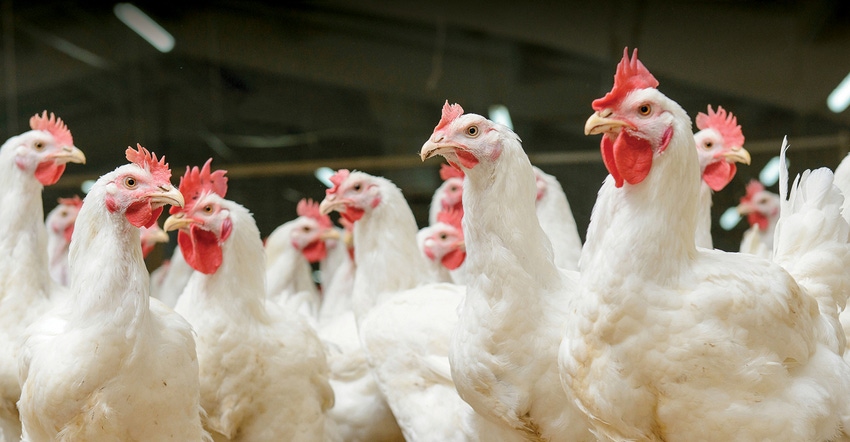China adopts regionalization policy on poultry imports
Both countries agree not to impose trade restrictions on each other for findings of low-pathogenic avian influenza.

The U.S. Department of Agriculture’s Animal & Plant Health Inspection Service (APHIS) announced a regionalization agreement with China for the safe trade of poultry products. The countries have agreed to follow all international standards, guidelines and recommendations related to regionalization. This agreement will help U.S. farmers and ranchers by maintaining export markets, which will reduce the overall impact of an outbreak on the agriculture industry.
Tom Super, spokesman for the National Chicken Council, said this has been a top priority for the poultry industry for several years. “It is important for China to adopt a regionalization policy because the U.S. has one of the most stringent surveillance, eradication and monitoring programs in the world when it comes to avian disease. In the event of an outbreak, most of our trading partners limit any potential restrictions to the county or state level,” he said.
Super added that before the blanket ban in 2015 due to highly pathogenic avian influenza in turkeys and layers, China was a $722 million-per-year market for broilers at its peak. “We've just now begun resuming chicken exports to China after they lifted the ban late last year,” he stated.
APHIS explained that regionalization is an important tool animal health officials can use to protect against disease spread. When disease strikes, unaffected regions are still eligible for international trade. Because the animals in regions affected by diseases are kept separate and maintained under trade restrictions, there is a minimal risk of those animals spreading disease. APHIS used regionalization to ensure continued trade with other countries in many recent foreign animal disease outbreaks, including highly pathogenic avian influenza and virulent Newcastle disease.
The agreement with China allows trade of poultry products to continue from unaffected regions of the country should the U.S. detect any future cases of highly pathogenic avian influenza or virulent Newcastle disease. This is because the U.S. demonstrated to China its ability to effectively regionalize for avian influenza, allowing safe trade from disease-free zones. In return, the U.S. has agreed to implement regionalization for Chinese poultry products once China has officially recognized free zones in place. Both countries also agreed not to impose trade restrictions on each other for findings of low-pathogenic avian influenza.
The regionalization agreement details numerous steps the U.S. and China must take if highly pathogenic avian influenza is found in poultry to ensure the safety of the birds. These steps include controlling the area, notifying the other country, suspending imports and exports, culling and disinfecting, monitoring the situation and resuming imports and exports.
This action is part of the continuing progress to implement the U.S.-China Phase One Economic & Trade Agreement. The agreement entered into force on Feb. 14, 2020, and this poultry regionalization action builds upon measures that were previously announced on Feb. 25 and March 10.
About the Author(s)
You May Also Like





